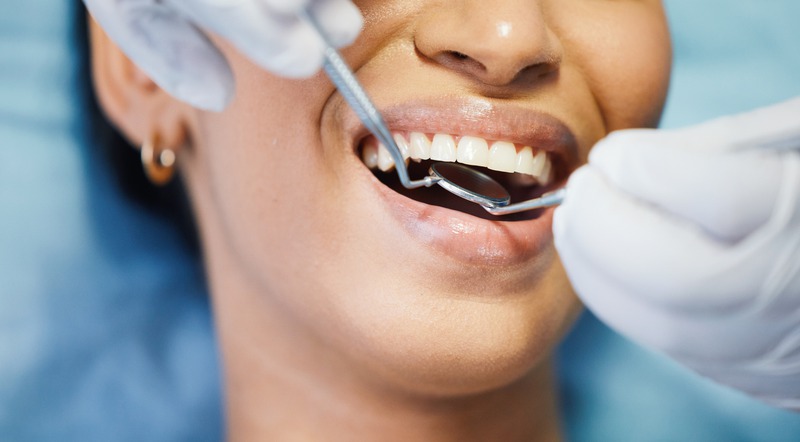Expectant mothers often find themselves navigating a whirlwind of new experiences, including some unexpected changes in their oral health. Many are surprised to learn that pregnancy can significantly impact dental well-being. This article explores the intricate relationship between pregnancy and oral health, providing insights into common oral concerns and practical tips for maintaining dental hygiene during this unique stage of life. By understanding these connections, mothers-to-be can better safeguard their health, ensuring a healthy pregnancy journey.
Pregnancy and Oral Health Connection
The link between pregnancy and oral health is more critical than often realized. Hormonal changes can lead to various dental issues, making it important for expectant mothers to prioritize their oral hygiene. Significant hormonal fluctuations increase the risk of gingivitis due to heightened blood flow to the gums. This may manifest as swollen, tender gums that bleed more easily during brushing or flossing. Additionally, some women may experience benign growths on the gums, known as pregnancy tumors, caused by inflammation.
Common Oral Health Issues During Pregnancy
-
Gingivitis: A mild form of gum disease with symptoms like swelling and bleeding, common during pregnancy.
-
Pregnancy Tumors: Non-cancerous growths that may form on the gums, generally harmless and subside postpartum.
-
Tooth Decay: Increased acid exposure from morning sickness can erode enamel, leading to cavities.
-
Periodontal Disease: Severe gum infection linked to pregnancy complications, affecting overall health.
Strategies for Maintaining Oral Health During Pregnancy
Oral hygiene is particularly important during pregnancy to avoid complications for both mother and baby. Here are some practical steps to maintain dental wellness during this time:
-
Brush with fluoride toothpaste twice daily to maintain strong enamel.
-
Floss regularly to reduce plaque buildup, addressing areas a toothbrush might miss.
-
Limit sugary snacks and beverages to prevent decay.
-
Ensure adequate intake of calcium and vitamin D to support dental and fetal health.
-
Visit the dentist for routine checkups, ideally during the second trimester when it’s most feasible.
When to Seek Dental Advice
Regular dental visits are crucial during pregnancy, but certain symptoms warrant prompt consultation with a dentist. Persistent bleeding gums, unusual swelling, or any toothache should not be ignored. Keeping the dentist informed about the pregnancy allows for care adjustments to ensure safety for both mother and baby. When seeking specialized dental care in Bethlehem, PA, during this period, it’s beneficial to choose providers who offer services tailored specifically to the unique needs of pregnancy. Integrated care can help alleviate worries and maintain oral health effectively.
The Role of Oral Health in Pregnancy Outcomes
Oral health significantly influences pregnancy outcomes. Periodontal disease has been associated with preterm births and low birth weights, although more research is needed to fully understand these links. Maintaining a healthy mouth during pregnancy contributes to overall well-being and optimal outcomes for both mother and baby. The connection between dental health and pregnancy highlights the importance of proactive care, emphasizing the need to address any potential oral health issues promptly.
Essential Tips for a Healthy Pregnancy Smile
A bright, healthy smile is achievable during pregnancy with a few strategic adjustments to daily routines. Here are some effective tips to ensure continued dental health:
-
Choose a soft-bristled toothbrush to minimize irritation to sensitive gums.
-
After morning sickness episodes, rinse thoroughly with water to neutralize stomach acids.
-
Consider sugar-free gum to stimulate saliva and help reduce acid levels after meals.
-
Consult an expert for smile makeover in Bethlehem for any aesthetic concerns during pregnancy.
-
Adhere to scheduled dental appointments for ongoing evaluation and cleaning.
Dental Treatments Safe During Pregnancy
Routine dental checkups and cleanings are safe and recommended, particularly during the second trimester when it’s most comfortable for the patient. Necessary procedures might be deferred post-pregnancy unless they are essential for the mother’s health. Discuss with the dentist to determine which treatments are appropriate. For instance, services like dental bonding in Bethlehem provide safe solutions with tailored materials suitable for pregnant patients. Avoid deferring critical dental care due to pregnancy-related apprehensions.
Dealing with Common Oral Discomforts
Oral discomfort can arise due to pregnancy-related changes. Common issues include increased sensitivity, dry mouth, and bad breath, often linked to hormonal shifts and dietary changes. Adding more fluids to daily intake and using a mouth rinse designed for pregnancy can help mitigate these challenges. It’s beneficial to monitor how different foods impact oral comfort, making adjustments to avoid aggravating sensitivity or causing enamel erosion.
Closing Remarks
Understanding the connection between pregnancy and oral health can empower expectant mothers to take charge of their well-being during this crucial period. Emphasizing oral hygiene and seeking timely dental advice can markedly improve pregnancy outcomes, protecting the health of both the mother and the developing child. By prioritizing dental health, mothers can enjoy a worry-free pregnancy and journey towards welcoming their newborn with confidence and a healthy smile.

